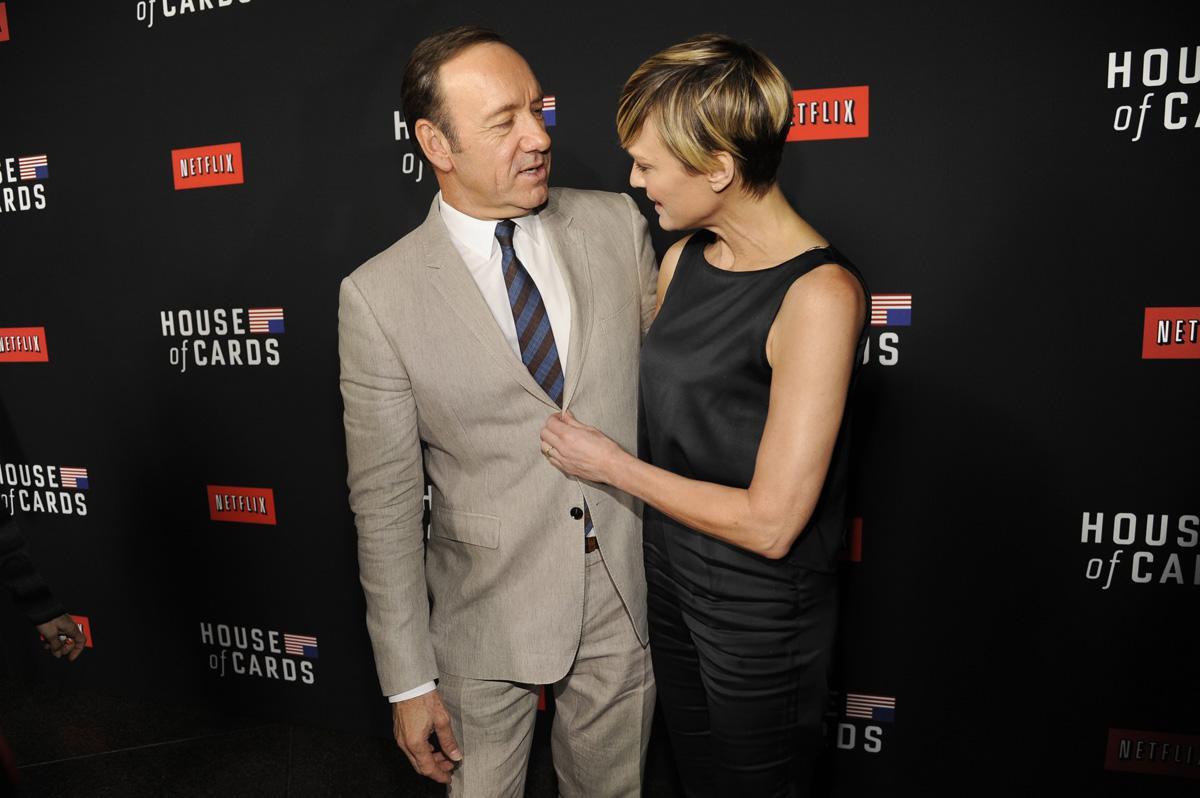The Netflix original series “House of Cards” embodies the views of Millennials in politics as opposed to shaping it. The show doesn’t pretend to promote pure and honest heroes like our political science classes do. It shows the dark side of politics and sheds light on the type of people who succeed in the hornets’ nest known as Washington.
With the midterm elections coming in November, “House of Cards” highlights the sentiment felt by Millennials. The show has become a pop-culture phenomenon with a realistic and gritty take on politics that is rare to see done well.
Why is it so popular?
Some political analysts and pundits worry that “House of Cards” and its Machiavellian world view will pollute the “Millennial Idealism” of politics and discourage political engagement and create apathy. The sad truth is that the idealism of the Millennials was ruined but not by a popular show.
As opposed to Bush and Obama, Frank Underwood embodies our expectations while not trying to foul us by pretending to be a hero. Most people who enjoy the show consider “House of Cards” a de facto documentary on Washington.
“At least he gets things done” is a common sentiment viewers have with the antihero Frank Underwood. The dark Frank Underwood doesn’t pretend to be an idealistic, honest and pure statesman; he ruthlessly bullies and strongarms lawmakers and pulls strings to push reform and keep Washington’s wheels moving.
The popularity of the show’s antihero explains the affection people in Louisiana have for Edwin Edwards. Although young idealist liberals are disgusted with corruption in Washington, their attachment to Edwards shows they care more about accomplishing reform than having a moral icon.
Edwards is arguably the Frank Underwood of Louisiana — a bigger-than-life political power broker who had the hearts and minds of Louisianians in the palm of his hand regardless of how much he isn’t like Mr. Rogers.
According to a recent Pew Research study, the Sept. 11 attacks, the Iraq War and Hurricane Katrina are the three most defining events for the Millennials.
These three events also explain the level of pessimism the Millennials have toward politics. After the tragedy of 9/11, everyone rallied around our president, believing he would lead us to retribution and justice. Bush’s approval rating peaked quickly to more than 90 percent. As a famous born-again Christian who wanted to lead a crusade against the evil Muslim extremists, most of us supported and believed in Bush.
This quickly became a farce after Bush pushed for an invasion of Iraq with lies about Al Qaida links to Saddam and weapons of mass destruction. During the Iraq War, the government lied and tried to cover up the torture in Abu Ghraib and lied about being greeted as liberators.
On top of a bloody war, the government’s failure and border line negligent homicide of thousands following Hurricane Katrina pushed the idealism of a new generation of voters passed its limit.
This dark era of neoconservatism jamming freedom down peoples’ throats and blatant lying about Iraq led to more than two-thirds of Millennials voting for Obama in 2008.
Obama embodied the last hope that many Millennials had in politics, but as the recent past has shown, reform is much harder than expected. Obama wasn’t as radically different from Bush as many first-time voters hoped. Over the course of four years, much of the Millennials’ hope and drive toward change was lost in politics.
For this reason, Obama’s support from Millennials dropped from 66 percent to 60 percent. Granted, Obama still had a majority, but most tended to vote for Obama as the lesser of two evils.
When it comes down to it, Millennials have a realistic view of politics not because of a popular show but because of the way politics turned out in our lifetime. “House of Cards” happens to be the only show to illustrate the politics we expect to see; it is cathartic for Millennials in dealing with politics, regardless of whether critics like it or not.
Joshua Hajiakbarifini is a 24-year-old political science and economics senior from Baton Rouge.
Opinion: ‘House of Cards’ not to blame for skewed politics
April 2, 2014
Kevin Spacey, left, and Robin Wright arrive at a special screening for season 2 of “House of Cards”, on Thursday, Feb. 13, 2014 in Los Angeles. (Photo by Chris Pizzello/Invision/AP)





